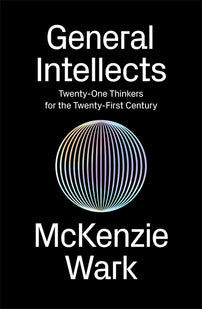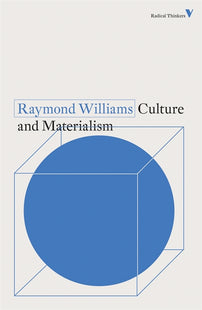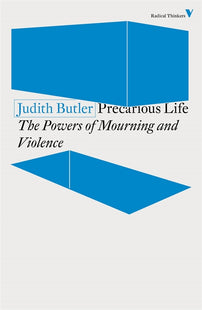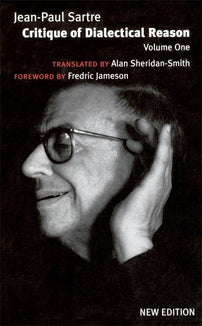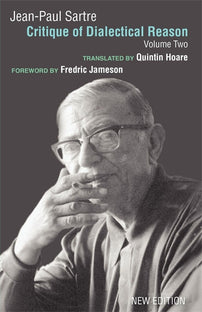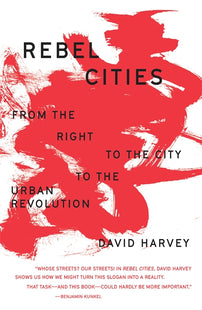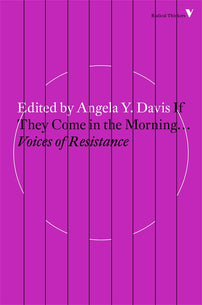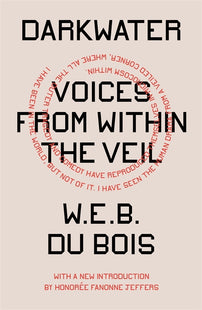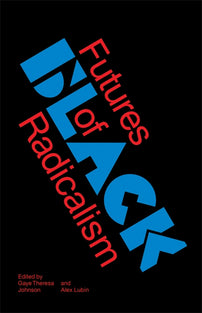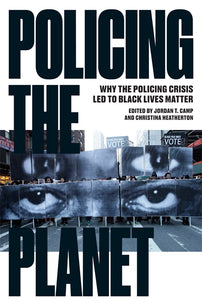Jackie Wang: Ghosts of the Civil Dead
McKenzie Wark looks at Jackie Wang's new book on carceral capitalism, the predatory state, municipal plunder, and algorithmic governance.
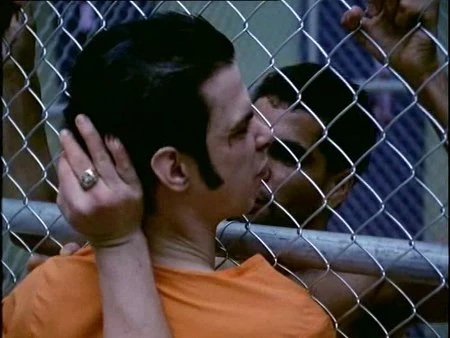
Ethnography begins at home. By ethnography I mean the culture of those who are other, considered as a whole way of life. In classical anthropology, the ethnographic starts elsewhere, and either overtly or covertly, it contrasts the other’s whole with that of a home world. In cultural studies, the culture of home is already divided, already internally contradictory. 1 This is an approach to the ethnographic that begins with not being at home at home, with this question: “How does it feel to be routinely degraded and exploited by the police?” (191)
There are many ways of not being at home at home. In Jackie Wang’s Carceral Capitalism (Semiotext(e), 2018) the unhomely enters through her brother being in prison. Wang: “There is a political knot at the center of my life, a point of great density, around which orbit my questions about the world and how it is structured.” (193) Wang writes of the various court dates, repeatedly deferred, for his appeal hearing: “What is prison? Immobility, yes, but also the manipulation of time as a form of psychic torture…. It warps the temporalities of everyone in the orbit of the disappeared person…. Our lives were punctuated by this anxiety-inducing cycle of anticipation and deferral.” (218-223)
A series of things snap into focus about everyday life. Her brother is in prison in Florida while she is in graduate school at Harvard. These seem like completely different worlds. How is the division between those worlds decided, justified, policed? How might the exclusion of her brother, and of millions like him, his social death, or perhaps civic death, be an intrinsic part of the world in which she (and most of the rest of us) get to live? How might those worlds, despite their differences, be increasingly governed by similar logics, of surveillance, data-collection, predictive algorithms, and of debt?
To even think this takes some effort, as it means that certain people have to be acknowledged to be people. Wang never tells us why her brother is in prison, because it should not matter. He is a person to her. He could be a person to us, if we accepted his personhood without qualification, without needing him to be innocent first. This is the pressure Wang wants to put on our thinking: to get over limiting our care and attention to those we deem, in some arbitrary way, to be innocent. Which is not to insist that we are all guilty, as that is part of the same logic. Rather to acknowledge that we are all implicated.
This brings us directly to the internal tension within the Movement for Black Lives. The most mobilizing cases have been instances of Black children who have been out in some social space that the white imaginary can grasp, like a playground or a parking lot, and who have been murdered by the police for no apparent reason at all. Pictures of these children in school graduate gowns circulate. Defenders of police murderers, and white supremacy in general, are quick to insinuate that these children were doing something wrong, or behaved in a threatening manner, or are rumored to have been shoplifting, or something — anything — that denies them their innocence. Black people have to be innocent, which ends up meaning they have to be like white people, as Black people are presumed not to be innocent.
Why should only the innocent children be worthy of care? Of life? Why not adults who may not be pure innocent beings? Wang connects this criteria of innocence to an anxiety about physical safety and demand for comfort. Wang: “The politics of innocence and the politics of safety and comfort are related in that both strategies reinforce passivity. Comfort and innocence produce each other when people base the demand for comfort on the innocence of their location or subject position. Even though I am a queer woman of color, my existence as a person living in the United States is built on violence. As a non-incarcerated person, my ‘freedom’ is understood only through the captivity of people like my brother, who is serving a forty-year sentence.” (286)
Bodies that arouse fear, disgust, discomfort, guilt, must be removed from social space. I would add two things to this. The demand for comfort comes from thinking from the point of view of a consumer. One is not a student or a citizen, one has bought an experience and feels entitled to customer service. More charitably, the demand for spaces of safety and comfort may in part stem from feeling precarious and uncertain about one’s chances in the world. Both connect to one of Wang’s themes, which is the rise of debt as the dominant social bond, which in turn is part of a broader picture of the quantitative management of risk and uncertainty.
The liberalism of liberal America is always qualified. Its tendencies to exclusion rarely rise to the level of a concept. It has bad feelings about certain kinds of people. “White civil society has a psychic investment in the erasure and abjection of bodies onto which they project hostile feelings, allowing them peace of mind amidst the state of perpetual violence.” (287) This is the condition of possibility for politics in the sense that liberal political theory can understand it. Consider, for example, the psychogeography of Zuccotti Park during Occupy Wall Street. 2 The general assembly was as far away as it could be from the drum circle, and its consensus-talk treated the latter-day hobos who gathered at the other end under the category of problems.
Where Judith Butler works outwards from the bodies assembled in the movements of the squares, Wang asks who is excluded from being there at all and what forces conspire to separate such a them from an us. 3 This leads to a quite different field of concepts, such as algorithmic governance, municipal plunder, and the predatory state. While she corals these new concepts under the old rubric of a biopolitics, I think they may actually point beyond the its limitations.
In the United States and perhaps elsewhere, the state has evolved from a tax state, to a debt state, to a predatory state. (17) Local government in particular is accountable to creditors, not publics. Despite austerity, the police and prison systems continue to be amply financed, even if, as we shall see, policing is tasked with raising its own revenue. Policing protects property, not social relations. Expanding prisons is a popular policy with rural constituencies, for whom prison employment is one of the few new sources of jobs. Spending on prisons has risen much faster than on education. Wang: “incarceration has little to do with crime.” (62)
Filling prisons requires an expansion of crime, which calls for the criminalizing of populations deemed not to be innocent. Wang follows Huey Newton and the Black Panthers in seeing one of the key developments here a rise in the automation of labor leading to a surplus population, a mostly Black lumpen-proletariat. 4 The Black Panthers thought the tax state would expand welfare to keep a surplus population consuming, but instead what happened was an expansion of credit and mass incarceration.
The predatory state works in part through municipal plunder. Cities — and their tax-payers — end up footing the bill and taking the risk for so-called public-private development projects, meaning that the costs are socialized and the profits privatized. Such schemes are often examples of what David Harvey calls the spatial fix. When the property market crashes, cities step in with development projects to re-start accumulation. But when these stop working in turn, the city is left with the costs. Something like this happened in New York in 1975 and in Detroit in 2013.
In New York, what resulted was a political state of exception, where democratic oversight of the city’s finances no longer applied, resulting in an austerity regime aimed at paying back debt rather than running essential services. More recently, the city of Flint, Michigan has been without clean water for a thousand days and counting. In Detroit, the added wrinkle is that it was a form of high-risk borrowing — interest rate swaps — that caused the fiscal crisis in the first place. With municipal plunder, the city becomes a machine for extracting debt repayments from its citizens. Wang: “… the state is no ordinary borrower; it is a borrower endowed with the legal power to loot the public to pay back its creditors.” (173)
In cases like Ferguson, police power is deployed in the interests of finance. “In order to remain solvent, municipalities develop a parasitic relation to the people they are supposed to serve.” (175) Local governments struggle to raise tax revenue, and turn instead to borrowing, and to using the police and the courts to extract fees and fines, particularly from Black populations. In Texas 650,000 people are locked up for unpaid fines. In New Orleans judges are incentivized to levy fines. An Alabama judge forced people to donate blood to avoid going to jail for unpaid fines.
All of this is in some sense highly irrational, at least from the point of view of reproducing labor-power. It limits Black mobility, making urban space a carceral space. People are often captives in their home avoiding late fees and fines and unable to show up for work. In some places, there are private collection agencies, alcohol monitoring services, and private probation companies who can also levy court mandated fees, or insist on them even when the courts do not. In Ferguson, municipal fees were at 20% of the town budget at the time Black Lives Matter erupted.
Government moves from providing the social to enforcing security. There’s a delegitimizing of welfare based on a racism that casts Black people as a whole as deserving of punishment and subject to gratuitous violence. Wang acknowledges the critical force of Afropessimist writers such as Frank Wilderson and Jared Sexton, for whom violence against Blackness is foundational, and not merely an exception, to the liberal respect for the individual legal subject. 5 For Afropessimists, Black enslavement is the essential condition of possibility of capitalism. Slaves were brought here to work and die. They were, and remain, a disposable rather than an exploitable population. The predatory state and municipal plunder are merely a wrinkle on primary historical practices and categories. For example, the emancipation of the slaves should in theory have converted chained slave labor into "free" wage labor, but anti-vagrancy laws were widely enacted to restrict Black mobility.
Wang combines this point of view with a Marxist one. She sees Black America as being both disposable and exploitable. She finds W. E. B. Du Bois already trying to negotiate this. After witnessing a lynching, he discovered the sadistic side of racism, and moved away from social science. Wang: “How terrible it must have been for W. E. B. Du Bois to realize he had mistaken dusk for dawn.” (309) Racial hatred has an irrational core, and trumps enlightened reason. One saw this in the Rodney King trial, where white jurors simply could not see a Black man being beaten by multiple cops, and saw instead a Black man “resisting.” This pattern repeats over and over in the acquittal of cops for murdering Black people, a situation police bodycams will not solve and may make worse.
On the other hand, perhaps not everything is explained by the violent maintenance of an irrational division of the population into white civil subjects and a Black population not recognized — and never recognizable — as fully human by even a liberal political order. Wang turns to Cedric Robinson’s work on racial capitalism. 6 For Robinson, racialism predates capital, and capitalism was not a universal force of modern rationalization. Marx was aware of the complexities, including those of race, within the social formation, but in the political writings, not in Capital. There he presents capitalist social relations more or less alone.
From Capital one gets a one-sided view of social formation that in actuality may include several modes of production, and where their interactions cannot be excluded without distorting our view of what the capitalist mode of production is and does. Capitalism appears as an homogenizing social process. What is lost from view is that the social formation is also differentiating. Capital exploits a homogenized class of wage laborers who are formally "free" to sell their labor. But that is just part of a social formation that differentiates free labor from unfree labor, and expropriates from the unfree.
One could get the impression from Marx that primitive accumulation on the backs of the unfree came first, but was rationalized into the exploitation of free labor. For Robinson, and for Wang, it is more helpful to see both kinds of relation operating together. Marx wrote as if the expanded reproduction of capital could take place entirely within its own circuits. For Rosa Luxemburg capital always requires an outside. 7 It depends on expropriation. David Harvey reframes Luxemburg’s thesis as accumulation by dispossession. 8 It’s an ongoing, rather than prior, condition. Wang follows Harvey in thinking it may happen in the over-developed world as much as in the colonial and formerly colonial peripheries.
Wang: “expropriation produces multiple categories of difference.” (118) This is a way of avoiding having our own political agency succumb to the very power that works by means of differentiation. There’s no advantage in arguing (for example) whether slavery is the sole basis of capitalism, or whether it is the theft of indigenous land. Or whether the disposable Black body is what is most excluded by differentiation from humanity, or the rapeable female body. Expropriation fractures the population.
The Afropessimists are right: it is surreal to imagine that Blackness could ever be included in the category of free liberal subject that is based in the first place on its exclusion. It takes nothing away from the specificity of that exclusion to bracket the claim that it is unique. Rather than the (eventual) inclusion of Black America, a more likely future is immiseration for all. Starting with Black populations, more and more marginal populations will be taxed, fined and garnished into funding the exclusionary urban development that excludes them. Capital as a mode of production may depend not just on prior or parallel modes of production that work by expropriation and dispossession. Maybe novel ones are emerging as well.
This brings us to algorithmic governance. Here the state of predictive policing, municipal fee-farming, racialized sub-prime mortgage lending, student debt, and much else start to come together in the same analysis. Let’s start with predictive policing. Using algorithms to predict where crime will happen appears as a neutral and scientific approach to policing at a time when policing has for a small but growing part of the population lost legitimacy.
Wang looks at PredPol, which grew out of a university research project and became a start-up. It claims to predict where crime will happen through an analysis of past crime frequency by location. There is no way of knowing if it works. The algorithm is proprietary. There’s no control test. The contract with the company obliged police to be its advocates if requested. The data on which it is based comes from a history of racialized policing. It is not even clear if more arrests or fewer are the sign of success, and it appears the company has argued that both ways. PredPol does have one outstanding merit: it makes it look as if racism as a factor in policing went away.
Black (and brown) Americans are incarcerated at higher rates than white people. This became evidence for higher rates of criminality. This in turn results in higher levels of policing of Black communities: “race is spatially produced.” (184) All of which gets buried in supposedly neutral computation. Where once the politics of space was governed by the free liberal subject and those excluded from being him, now it is also governed by predictive algorithms that take the differentiations and exclusions of that world as if it was just data. “These new forms of power create the illusion of freedom and flexibility while actually being more totalizing in their diffuseness.” (53)
This is the case not only with policing but also with access to credit, whether for a home, a car or an education. As we learned when the market for mortgage-back securities collapsed, many Black borrowers were shunted into subprime lending even when they qualified for lower interest loans. The cruel paradox of student loans is that students borrow to get degrees to get jobs, but employers use credit-scores as proxies for good citizenship, and students who have missed payments will have lower credit scores and hence less chance of employment. All of this is poorly regulated, not to mention subject to all sorts of arbitrary fees. My bank once tried to charge me an inactivity fee. Having to do nothing seemed to them an untapped income source!
Algorithmically managed consumer debt becomes a novel form of accumulation by dispossession. It appears as part of a larger pattern of control through information. Wang gathers the strands of her illuminating, high-contrast snapshot of today’s America under the concept of biopolitics. For Giorgio Agamben (after Foucault), biopolitics is the growing inclusion of human life in calculations of power. 9 Robert Esposito adds the concept of immunization. 10 One could think of immunity as the other side of community, a sort of exclusionary inclusion, an internal separation of what is deemed foreign or other.
In Foucault, biopolitics takes the place of sovereign power, the power over life and death. Just as Cedric Robinson shows expropriation working alongside exploitation, Esposito shows sovereign power working alongside biopolitics. The modern state does not really dispense with arbitrary violence, or what Achille Mbembe calls necropolitics, the power to kill, specifically killing in the interests of preserving life (for others). 11
Wang’s example of biopolitics at work is the creation of the category of the super-predator in the nineties. Criminologists glanced at a demographic bulge in young men of color, and predicted a crime wave. “The entire social body is diagnosed as being at risk of coming undone if the juvenile crime infection is not rooted out.” (203) The response was in part a sentencing regime that included juvenile life imprisonment without parole. Even the NAACP moved away from prison rights, and embraced tough-on-crime rhetoric, even though this was connected to such folk devils as the welfare queen, the Black rapist, and the super-predator.
Wang: “The biopolitical construction of juveniles as subjects defined by irrationality marks this subset of the population as a calculable risk that must be pre-emptively managed.” (197) This is not the sovereign politics of friend–enemy, which seems a bit out of date. It is one of contagion. Criminologists substituted metaphors from biology into thinking about the social (immunity). But these days it seems it is thought just as much through metaphors to do with information. Good citizens are information; bad ones become noise.
For Agamben, the typical space of biopower is not a political space at all, but the camps. These are established in a state of exception when the sovereign suspends the law, and the exception becomes the rule. This category is not limited to concentration camps, but might include refugee camps or extra-territorial sites of rendition and torture. There may be a whole spectrum of exceptions become law.
To which Wang adds the juvenile sentenced as an adult. In the past American law protected the juvenile from the full force of the law, on the grounds that they are not fully responsible civic subjects. The juvenile sentenced as an adult has none of the rights of an adult, other than the right to be punished as one. Wang: “… for the social body to defeat the infection of the juvenile superpredator, the undesirable element must first be incorporated into the body of the law.” (213) In this case, biopolitics creates the category of the delinquent youth who is such a threat that they have to be policed and incarcerated to prevent a future (theoretical) explosion of crime. “The emphasis is not on judging specific acts attached to specific persons, but on isolating a type of person that can be identified with abnormality.” (212)
As Michel de Certeau saw a long time ago, the thing about Foucault is that he always sees from the point of view of power itself. 12 Wang has to supplement the biopolitical frame with another. What one could add in between is the critical criminology literature that tried to see from the point of view of the so-called delinquent. For example, Howard Becker’s Outsiders asked about the difference between how such people are labeled by those with power over them compared to how they labeled themselves. Stanley Cohen asked about the role of the media in creating folk devils and whipping up moral panics about them. 13
Dick Hebdige asked about the aesthetic and cultural practices by which subcultures create themselves by recoding what received cultural material meant, changing the conversation around the delinquent from pathology to resistance. 14 Stuart Hall and others connected the construction of the British equivalent to the super-predator to the police diffusion of a political crisis. Wang is properly cautious about seeing political motives behind actions that respond to policing. Riots aren’t started by Leninists in the making. But perhaps there’s more to be said about subaltern agency, about a whole way of life, a culture, a sociality, that resists or evades civic death.
Besides its top-down perspective, biopolitics ends up relentlessly focused on the body, and moreover the body perceived at a certain scale. As Paul B. Préciado insists, much of the regulation of bodies these days in chemical as well as corporeal. 15 This applies to prison populations, psychiatric care but really to the maintenance of the contemporary body generally. There may be forms of techno-governance — chemical, informational — not quite captured by the concept of biopolitics at all.
Policing has always been technical. It may be a question of how its technics changes, and here the technics of differentiation and of homogenization, of crime and labor, might evolve in parallel. Wang calls the effect of technics the “intrusive-unseen.” (257) Wang: “Do you hear the surveillance camera whisper, your body is not your body, your body is a point on a grid…” (257)
Wang: “what those who designed these derivative financial products essentially did was take an underlying asset, hold it between two mirrors so that it appeared to proliferate to infinity, then mistake the multiplied reflection for the creation of new wealth.” (145) Wang shows something really very similar at work in the algorithmic production of criminal data. “It is possible that as technologies of control are perfected, carcerality will bleed into society.” (39)
Here I’d like to connect Wang’s work to that of the late Randy Martin on derivative logic, not just of finance but of political and cultural practices too. 16 We are all subject to a technics that now manages both differentiation and homogenization algorithmically. Perhaps it’s not capitalism any more but something worse. Another mode of production growing on top of it, where a vectoralist ruling class controls social space and extracts a surplus through information asymmetries, turning non-knowledge to its advantage.
Against which Wang wagers on the Black radical imagination, in the spirit of Fred Moten. 17 She writes: “in the interstices of this relentless assault on black life, an insurgent black sociality exists.” (191) She draws strength from Ferguson, from Standing Rock, from Occupy. But all were temporary. “The fissure was not a place where we could live. We could not hold on to the new social forms we invented in the process of revolt…. We failed to make the revolution our permanent home.” (301-2)
Perversely, such moments weld people together in what Sartre called the fused group in the face of police (and private security) harassment and violence. 18 But that external gaze only fuses the group for so long. They dissolve back into seriality and passivity. We’re left with the Black Liberation habit of “survival pending revolution.” (62) Perhaps we need an alternative technic as well as an insurgent corporeality.
Notes
1. Raymond Williams, Culture and Materialism, Verso, London, 2006.
2. On the psychogeography of Zuccotti Park and the innocent occupier: McKenzie Wark, Spectacles of Disintegration, Verso, London, 2013, pp. 200-204; on innocence as it applies to the construction of the deserving (and undeserving) in the case of refugees: McKenzie Wark, Telesthesia, Polity Press, Cambridge UK, 2012, chapter 7.
3. Judith Butler, Notes Toward a Performative Theory of Assembly, Harvard University Press, Cambridge MA, 2018.
4. Huey Newton, The Huey P. Newton Reader, Seven Stories Press, New York, 2011.
5. See Afropessimism: An Introduction, Wracked and Dispatched, Minneapolis, 2017, a free ebook that collects the key texts: https://rackedanddispatched.noblogs.org
6. Cedric Robinson, Black Marxism, University of North Carolina Press, Chapel Hill, NC, 2000.
7. Rosa Luxemburg, The Accumulation of Capital, Routledge Classics, London, 2003.
8. David Harvey, New Imperialism, Oxford University Press, New York, 2005; Rebel Cities, Verso, Brooklyn NY, 2013.
9. Giorgio Agamben, Homo Sacer, Stanford University Press, Stanford CA, 1998; State of Exception, University of Chicago Press, Chicago, 2005.
10. Roberto Esposito, Immunitas: The Protection and Negation of Life, Polity, Cambridge UK, 2011.
11. Achille Mbembe, "Necropolitics," Public Culture, Vol. 15, No. 1, 2003.
12. Michel de Certeau, Heterologies: Discourse on the Other, University of Minnesota Press, Minneapolis, 1986.
13. Howard Becker, Outsiders, Free Press, New York, 1997; Stanley Cohen, Folk Devils and Moral Panics, Routledge Classics, London, 2011.
14. Dick Hebdige, Subculture, Routledge, London, 1979; Stuart Hall et al, Policing the Crisis, Palgrave, London, 2013; Stuart Hall and Tony Jefferson (eds) Resistance Through Rituals, Routledge London, 2006.
15. Paul B. Préciado, Testo Junkie, Feminist Press at CUNY, New York, 2013.
16. Randy Martin, Knowledge LTD: Towards a Social Logic of the Derivative, Temple University Press, Philadelphia PA, 2015.
17. Fred Moten, Black and Blur, Duke University Press, Durham NC, 2017.
18. Jean-Paul Sartre, Critique of Dialectical Reason, Verso, London, 2004.
[book-strip index="1" style="display"]
